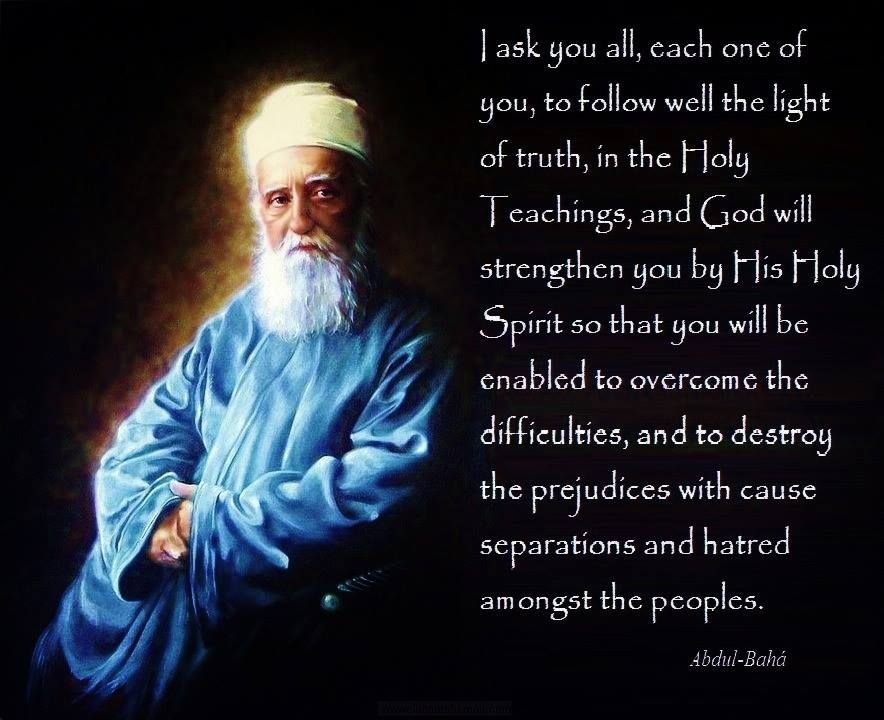The Bahá’í Faith is a relatively young religious movement that emerged in the 19th century, founded by Bahá’u’lláh. However, to comprehend its essence, one must delve deeper into its origins, beginning with the person regarded as the first Bahá’i. Who was this individual, and how did their commitment to a nascent faith redefine spiritual landscapes? This question serves as a gateway into the narrative of the Bahá’í Faith, a story rich with profound spiritual implications and historical significance.
To contextualize our exploration, we must first examine the sociopolitical milieu of Persia in the mid-19th century. This period was fraught with religious fervor and upheaval, as various sects vied for influence and supremacy. Amidst such turbulence arose a figure known as the Bab, whose teachings initiated a movement that would culminate in the Bahá’í Faith. The Bab, who proclaimed the coming of a new messenger from God, laid the groundwork for a spiritual revolution that would forever alter the course of religious history.
The Bab’s declaration in 1844 marked the inception of a new era, and it is within this seminal moment that we encounter the first Bahá’i: the Bab’s follower, a devoted individual who embraced the teachings of the Bab with unwavering faith. But who truly was this individual? The answer is not as straightforward as it seems. While many early followers can be identified as instrumental in propagating the Bab’s esoteric messages, one namesake stands out—Mírzá Husayn ‘Ali Núrí, known posthumously as Bahá’u’lláh, the founder of the Bahá’í Faith.
This brings forth an intriguing dilemma: if the Bab initiated the movement, does that not make Him the true first Bahá’i? This playful question invites a reconsideration of the term ‘first.’ The trajectory of faith is not solely about individuals; it encompasses the collective spirit of those who arose in response to divine revelation. Therefore, while the Bab indeed ignited the flame, it was Bahá’u’lláh who transformed that flame into a guiding light, providing the principles and teachings that would characterize the Bahá’í Faith.
Bahá’u’lláh was born in 1817 to a noble family in Persia. From an early age, he exhibited qualities of profound intelligence and compassion. His life, however, took a pivotal turn when he encountered the Bab’s teachings. In a society entrenched in rigid dogmas, the message of the Bab resonated deeply with Bahá’u’lláh, compelling him to advocate for social reform, unity, and the necessity of a new spiritual paradigm. This commitment would ultimately lead to his designation as the ‘Promised One’ of the Bab’s prophecies.
Upon the Bab’s execution, Bahá’u’lláh faced his own trials. His outspoken advocacy for the Bab’s teachings incited the ire of authorities, culminating in his exile from Persia. This period of suffering not only strengthened Bahá’u’lláh’s resolve but also catalyzed the formulation of his profound theological insights. During his years in exile, Bahá’u’lláh penned several key texts, including the “Book of Certitude,” which expounds on the nature of God, the purpose of humanity, and the essence of spiritual progress.
The teachings of Bahá’u’lláh are both diverse and quintessentially unifying. He promulgated principles that emphasize the oneness of humanity, the importance of universal education, and the eradication of prejudice. Central to Bahá’u’lláh’s message is the idea that all religions stem from a single source and should foster love and accord among their followers. In this respect, Bahá’u’lláh creates a harmonious synthesis of diverse faiths, encouraging an understanding of the interconnectedness of all spiritual paths.
The definitive spiritual and practical interpretations Bahá’u’lláh provided won him an ardent following. As the first Bahá’i, his role transcended that of a mere adherent; he became a powerful messenger of peace and unity. His teachings resonated with diverse populations and challenged established paradigms, presenting a radical vision of a future bereft of conflict and imbued with compassion.
The story of the first Bahá’i is not merely a historical account; it epitomizes a struggle for authenticity and enlightenment. Each Bahá’i, while potentially identifying with Bahá’u’lláh as the first among equals, also embodies the principles of diligence, devotion, and a willingness to challenge societal norms. Following Bahá’u’lláh’s death in 1892, the development of the faith continued under the stewardship of ‘Abdu’l-Bahá and later Shoghi Effendi, who further propagated the teachings and helped establish the administrative framework that characterizes the global Bahá’í community today.
Through their varying interpretations and applications of Bahá’í teachings, adherents worldwide can trace a lineage of commitment that stretches back to that pivotal moment in 1844. The evolving narrative of the Bahá’í Faith underscores the importance of personal and collective action in promoting principles of justice and morality. While we may ponder the question of who qualifies as the first Bahá’i, it is perhaps more crucial to recognize the enduring legacy of the ideals espoused by Bahá’u’lláh and their pertinence in addressing contemporary global challenges.
Ultimately, the exploration of the first Bahá’i offers a glimpse into the heart of a faith grounded in the pursuit of truth and unity. As the movement continues to grow, each follower contributes to the tapestry of a community bound not only by belief but by an unwavering commitment to the vision of a world in which all people are harmoniously interconnected. Indeed, the story of the first Bahá’i is as much about an individual as it is about the collective awakening to a higher purpose—a nexus where faith, action, and humanity converge.
